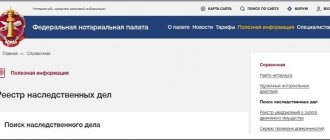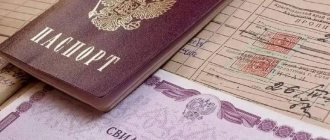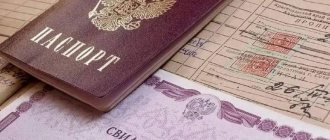When a misfortune occurs such as the death of a person, the course of action depends on where it happened. Death situations can be different, so it is important to understand what to do. For example, if a person died at home, then you need to call not only an ambulance to confirm the death of the deceased, but also the police.
Unfortunately, death can be accompanied by other troubles. For example, ritual agents often come and extort money. If you are faced with this situation and do not know what to do, contact a lawyer.
Action plan
If the deceased person died in your presence, then you should call an ambulance. Perhaps he can still be revived. But in this case, it is better for the ambulance to say that the person is unconscious.
There is a chance that doctors will arrive faster. Death is not considered an emergency. In cases where a person died on weekdays and during the daytime, a local doctor should be called. If working hours have not yet started or have already ended, then you should call an ambulance so that doctors can confirm death.
The ambulance number for landline phones is 03, for cell phones - 103. The number of the district police officer can be found on the website of the hospital in the area to which the deceased person is assigned.
After you have called an ambulance or a local doctor, call the police. The number for landline phones is 02, for mobile phones - 102. The police must be called in order to establish exactly how the death occurred: natural or forced. The police will examine the body and write a report.
This will help you obtain a death certificate. If the police determine that the person did not die independently, then his body will be taken for examination, and then a criminal case will be opened.
When the ambulance arrives, you will be asked to provide a document proving your identity, the passport of the deceased and his compulsory health insurance policy. Doctors are required to examine the body and establish the fact of death. Next, they must issue two documents: an inspection report and confirmation of the fact that the person has died.
Perhaps a funeral agent will come to you. They receive data from the ambulance for a certain amount. You may be forced to sign a contract, but remember that you are not obligated to do so. Most likely, the prices for their services will be inflated, so it is worth finding another funeral home that will help organize the funeral in the future.
The ambulance or the police cannot decide for you what to do with a person's body. If you do not want an autopsy to be performed, you have the right to refuse. However, this is not possible in all cases. An autopsy is required if:
- unnatural death is suspected;
- it is not possible to establish the cause of death;
- a man died in the hospital, but did not spend even a day there;
- the deceased is suspected of using drugs that led to an overdose;
- died in the hospital due to the fault of doctors;
- suffered from an infectious disease;
- died in any accident;
- died during the birth of a child.
Otherwise, relatives can leave the person’s body at home, and then turn to funeral homes that handle embalming, washing and all preparations for the funeral.
If at this moment it is difficult for you to do this, then you can tell the ambulance that you want to leave the body of the person who died in the morgue for a week. It's free. This period may be two weeks if relatives cannot pick up the deceased earlier. The sending of the body to the morgue must be announced immediately. If you refused and then changed your mind, the logistics will be your responsibility.
After all these steps, you need to obtain a certificate that the citizen has died. To do this, you need to collect: documents issued by police and medical workers (protocols); personal passport and medical card of the deceased; his medical insurance. All these papers must be taken to the registry office.
Documents required in the first days after death
Immediately after the death of a relative or loved one, a series of sequential steps should be taken, accompanied by the receipt of certain documents.
Medical certificate and police report
If a person dies at home, you need to start by calling an ambulance, which will confirm death and issue an appropriate medical certificate.
A police report must also be obtained. The police must be called immediately as soon as death is confirmed. The protocol must contain the results of the examination of the body and place of death, the presumed cause of death, the fact of force or its absence. The police officer must sign the document.
If there is a medical certificate and a police report, the body can be taken away. For standard funerals, you should consider special transportation. This service will deliver the body to the morgue; its employees must present a certificate and conclusion. If you need to embalm a body, you should contact a funeral service.
Death certificates
The next mandatory step is to issue a medical death certificate. It is issued at a morgue or medical facility. Recipients may be family members of the deceased, close relatives or a legal representative.
The document is issued in form No. 106/u-08. The basis is the following documentation:
- passport of the deceased person;
- his outpatient card;
- his compulsory medical insurance policy;
- applicant's passport;
- death certificate;
- police report (if drawn up).
This document is very important, since a body is released for burial only if it is available. The certificate must contain the following information:
- series and document number, date of issue;
- Full name of the deceased, gender, date of birth;
- date and time of death;
- address of permanent residence, type of area;
- a place of death.
If someone dies in a hospital, the institution sends the deceased to the morgue independently, notifying relatives. They are left to deal with the medical death certificate. It must be obtained using a standard algorithm.
It is also required to issue a stamped death certificate, which will remain with relatives after the funeral. It is issued at the registry office based on the following documentation:
- applicant's passport;
- passport of a deceased person - upon issuance of a completed certificate, it will be irrevocably confiscated;
- medical death certificate;
- application for registration of death, form No. 16.
The death certificate is issued on the day of application. The service is free.
Documents in case of violent death
This is a special case. If violent causes of death are identified or suspected, the body is taken to the forensic morgue. This also happens when dying in a public place.
The investigation is carried out by the prosecutor's office or the police. If the fact of violent death is confirmed, then a criminal case is initiated. If the death occurred due to natural causes, then a decision must be made to refuse to initiate criminal proceedings.
Relatives or close people can receive the body only after permission from the police or prosecutor's office. It must be received in writing.
Death in another city or country
In this case, you need to act as standard, taking into account local peculiarities. The medical institution of the locality where the person died is responsible for issuing a medical death certificate.
To transport the body to the burial site, a specialized vehicle is needed. Like this. For transportation in a special vehicle, you only need a death certificate and a certificate of embalming. If transportation is carried out by plane, then the list of documents is longer:
- death certificate;
- passport and air ticket of the person accompanying the cargo;
- certificate from the sanitary-epidemiological station;
- certificate confirming the absence of foreign objects in the container.
If a citizen of the Russian Federation died abroad, then all the formalities are carried out by the Russian consulate, and the relatives pay for the transportation. For it you need:
- passport and visa (if any) of the deceased;
- medical certificate of death – the fact of death abroad must be indicated.
Documents for funeral
Funerals, including cremation, are carried out with the following documents:
- police inspection report;
- death certificate;
- death certificates: medical, from the registry office;
- An agreement for the provision of funeral services must be drawn up by an agent of the funeral service.
Usually the funeral is organized on the third day. This is a Christian tradition; other religions have their own rules. Registration of all documents may take longer; the body is kept in the morgue for free for up to 7 days.
If within 14 days the relatives or representatives of the deceased are not found, the body will be registered by the morgue as unclaimed. The funeral is provided by the state; on the grave there will only be a sign with the burial number.
Funeral arrangements
Once you have received the person's death certificate, you can begin organizing the funeral. A free burial plot is provided free of charge.
You will need to contact the city administration with an identity document and a certificate from the registry office. You can also bury the person next to relatives if they are close. In this case, the package of documents is slightly different. You must provide:
- a document proving your identity;
- certificate of death of a person;
- a document that confirms the marriage or blood ties of the deceased with the person near whom you want to be buried;
- a document from the funeral, which states the plot number and also provides information about the burial. It can be requested at the cemetery.
To organize a funeral, you will need money. The state helps: it gives out about 6 thousand rubles. This amount may vary by region.
You can receive this help within six months after a relative has died. If you sent a person’s body to the morgue, then they wash it, dress it and put it in a coffin for free. Items must be brought the day before the funeral. But all cosmetic services are paid separately. You will also be responsible for the costs of purchasing a coffin, logistics, and you will also have to pay for the rent of the premises in which the farewell will take place.
Sources:
Payment for funeral
Payments to the family of the deceased
If the work of the deceased was not associated with professional risk (that is, he was not a military man, sailor, pilot, etc.) and the cause of death was not an accident, then, in accordance with current legislation, the state will pay the relatives a funeral benefit.
Benefit
Federal and Moscow funeral benefits
The employer must pay the family of the deceased the remaining unpaid salary, including compensation for unused vacation. Payment is made within a period not exceeding a week after a written request from relatives, subject to presentation of:
- death certificates,
- applicant's passports,
- documents confirming relationship and cohabitation with the deceased.
By law, the employer is not required to pay any additional compensation to the family of the deceased. Sometimes compensation payment in the event of the death of an employee is determined by an employment contract or a collective agreement concluded between the trade union operating at the enterprise and the employer.
An employer can support the family of a deceased employee by providing financial assistance, helping with funeral arrangements, assisting in the employment of someone in the family, and so on. Usually, in the event of a tragedy, employees who worked with the deceased collect some money for the funeral and help organize it. Help from the trade union is also possible.
In the event of the death of a serviceman, death due to an industrial accident or due to harmful working conditions, compensation payments are provided from the state through the Ministry of Defense or the Social Insurance Fund.
If a military man dies while performing his official duties, his family is entitled to a one-time payment of three million rubles. The state also pays an increased benefit for the funeral of a military personnel. In the event of death caused by an accident or occupational disease, the family of the deceased must be paid a lump sum of one million rubles, provided that the GIT commission has established a causal connection between the work and the death of the employee. More information about benefits in cases of death of a military personnel or death due to an accident at work can be found in the relevant articles on our website.
How to find out where the deceased's account is
To find out whether the deceased’s money is kept in the bank, you need to make a notarial request to it.
For drawing up requests, the notary charges a fee, the amount of which is established by the notary chambers of each constituent entity of the Russian Federation, explains Yuri Telegin. This is an average of 100 rubles per request. Some banks also charge a small fee of several hundred rubles for providing such information, while others provide the service for free. In this case, the bank needs confirmation of death and that the author of the request is an heir or an authorized body, UBRD explained.
However, the notary is not obliged to carry out investigative work and make inquiries to all banks, emphasizes Roman Stepovoy. Therefore, people turn to private detectives for help, who, through their own channels (personal contacts, closed databases, the capabilities of the security services of certain structures, etc.) try to find out the information that interests the customer, he states.
“When the heir, the customer of detective services, asks a notary to send a request about the accounts and deposits of the deceased to a specific bank, then no one will ask him about the algorithm for obtaining this information. But the methods for requesting this information may lie outside the legal framework,” explains Stepovoy.
You can find out about securities from the mail of the deceased - letters should be sent to his name informing about shareholder meetings, payment of coupons on bonds, and the like, says Klishin.
Documents for burial
To bury a person in the traditional way - in a coffin placed in a grave - you do not need to buy a plot: in Belarus, a place in an open cemetery is provided free of charge. All you need to bury a body is:
- medical or stamp of death certificate;
- funeral organizer's statement.
There are also family burial grounds - necropolises - in which it is possible to bury several family members. Typically, such necropolises are purchased in advance, and the places in it remain the property of family members, so that in the future deceased relatives will be buried next to each other. In this case, in addition to the certificate and application, documents confirming kinship with people already buried in the necropolis will be required. These documents will be needed for any sub-burials to existing graves. In some cases, when purchasing a seat, you will need payment documents.
“Even during his lifetime, he entrusted his wife with this right”
Rimma Svechnikova’s husband, 70-year-old Evgeny Svechnikov, was hospitalized at the Kirov Research Institute of Hematology and Blood Transfusion in 2016, where he was diagnosed with chronic lymphocytic leukemia and prescribed chemotherapy. After two courses, the man went to Israel for a consultation, and upon his return continued treatment at the research institute. He then traveled again to Israel, where he died in March 2021.
Lawyer Ekaterina Baturina said that at the research institute Evgeniy received chemotherapy with contraindications, and the second time without any indication at all. “This killed the patient’s immunity, after which the infection began to develop,” she explained. “In fact, the patient’s fate was predetermined. Russian professors in criminal matters and Israeli specialists are in solidarity on this.”
In fact, the patient's fate was sealed
Svechnikov’s family was embarrassed by the fact that Kirov doctors asked to formalize a refusal of treatment in exchange for extracts for treatment in Israel. At the same time, according to the lawyer, the doctors themselves admitted during the last hospitalization that they could not offer anything to the patient and the relatives needed to take him home. When the family decided to understand in more detail how the treatment was carried out, they asked the institute’s management to give them Svechnikov’s medical card. But they refused to give the documents to his widow.
Then Rimma Svechnikova filed a lawsuit in the Leninsky District Court of Kirov to challenge the doctors’ refusal to issue a medical card. In parallel with this, the family wrote a statement to the Investigative Committee and an appeal to the prosecutor's office. Investigators opened a criminal case under Part 2 of Article 109 of the Criminal Code of the Russian Federation (causing death by negligence).
As a result, it turned out to be a vicious circle: the prosecutor’s office sent Rimma Svechnikova to court, the court to the investigative authorities, and the investigation completely refused to acquaint her with the documents. The lawyer noted that the handwriting examination of the Russian FSB Directorate for the Kirov Region and specialized experts came to the conclusion that while the investigation was confiscating the documents and not giving them to Svechnikova, changes were made to them: corrections, inserts, additions, as well as other people’s signatures.
The criminal case continues to be considered, more than 30 court hearings were held (under Part 2 of Article 238 of the Criminal Code of the Russian Federation), but courts of all instances refused to issue documents to the relatives. Baturina said that she decided, in case of refusal, to appeal to the Constitutional Court even before the court of first instance made a decision.
“Constitutional proceedings have their own specifics: you need to clearly understand the essence of the issue. Although from the point of view of any person it is clear why Svechnikova, having lived with her husband in marriage for almost 50 years, caring for him for two months until his death, should receive his medical documents, the lawyer emphasized. “Even during his lifetime, Evgeniy entrusted her with such a right, so what should be the secret for her now?”
Labor Code: leave upon death of a close relative
Death is always unexpected. The legislation of the Russian Federation provides for the opportunity for family members to organize the funeral of the deceased and experience grief by taking a temporary break from work. Based on Art. 128 of the Labor Code of the Russian Federation, an employee has the right to unpaid leave in connection with the death of a close relative. Time off for a funeral according to the Labor Code can last up to 5 calendar days inclusive.
Read more about other unscheduled unpaid leaves that an employee can use in this material.
As you may have noticed, in Art. 128 of the Labor Code of the Russian Federation refers specifically to close relatives. Who belongs to them?
The Labor Code does not clearly define the concept of “close relative”. In this matter, you should refer to another code - the Family Code. In Art. 14 of the RF IC provides a list of close relatives:
- parents;
- children;
- Grandmothers and grandfathers;
- grandchildren;
- siblings who have one or both common parents.
If an employee from this list dies, the employer cannot deny a subordinate leave due to the death of a relative.
IMPORTANT! Adopted family members and adoptive parents in the list of close relatives from Art. 14 RF IC no. They are subject to another norm of legislation - the adoption procedure leads to the fact that adopted children lose both their rights and obligations in relation to relatives by blood, and the family and relatives of the adoptive parents and the adopted children themselves are equated to blood relatives (Article 137 of the RF IC) . Thus, if one of the participants in the adoption procedure has died, then the other party also has the right to receive leave to attend the funeral of a close relative.
Find out whether an employer can refuse to provide leave due to the death of a stepfather in the material from ConsultantPlus. Get trial access to the system and read the answer from a K+ expert for free.
Legislative acts of the Russian Federation do not contain restrictions on the frequency of management granting leave for a funeral: if a worker in the current calendar year suffered a loss more than once, but several times, the employer gives time off in each case.
If there was cremation
If a loved one was cremated, you dispose of their ashes in accordance with your decision or the wishes of the deceased. There are many options for how to deal with ashes: from the traditional burial of an urn with ashes in a grave or in a niche in a columbarium to scattering it in a memorial place or sending it into low-Earth orbit. You can separate the ashes and bury them in different graves, for example in your family's place of residence and in your hometown.
It is important to remember: after cremation, the urn with ashes is stored in the crematorium until claimed by its relatives for 1 year. If the ashes are not claimed, the urn will be buried in a common grave at the crematorium. The ashes are stored free of charge for up to 40 days, after which the crematorium begins to charge a storage fee.
What documents are needed to receive a body from the morgue?
To smoothly receive a body from the morgue, the following documents are needed:
- passport of the person performing the burial ceremony or other document identifying the person;
- passport of the deceased or other identification document;
- card from the clinic (for medical history examination);
- health insurance policy of the deceased.
Documents for burial in a related grave:
Documents for a family burial must include evidence of close relationship with those who previously died on the site or the owner of the site. For example, this could be a marriage or birth certificate.
- Official certificate of death.
- Receipt-order for funeral goods and services.
- Passport of the person performing the burial ceremony or other document identifying the person.
- Rights to related burial.
The day after the funeral
Home after a funeral - disinfect the room
If a person died at home, the day after the funeral, disinfect the apartment (house) where the death occurred. To do this, call specialists from a funeral service that provides such a service, for example, the city funeral service Ritual.ru.
According to medical research, the process of decomposition of dead tissue begins within 30 minutes after a person’s death. City statistics show that on average the bodies of the deceased remain in the house for 2-3 hours before they are taken to the morgue. During this time, the decomposition process enters an active stage, and housing becomes life-threatening. If the body has been at home for more than 6 hours, then disinfection is necessary. Simply cleaning on your own is ineffective and cannot eliminate all health hazards. It is necessary to disinfect and deodorize the premises (apartment) after the deceased - a set of special measures to destroy infectious agents and toxins.
Home after the funeral - remove the clothes the deceased was wearing at the time of death
We are talking about the clothes that a person was wearing at the time of his death, if death occurred at home. If the deceased is not immediately taken to the morgue, the process of decomposition begins in his body. Wearing or passing on clothing that was on the body at the time of death is dangerous, so it is better to get rid of it after the funeral.
Home after a funeral - remove the deceased's bed
If a person dies in their bed, it is safer to throw away the bed linen and disinfect the bed. If the deceased lay in bed for a day or more, then it is better to get rid of bed linen. If the deceased lay in bed for no more than a few hours, then after the funeral it is enough to thoroughly disinfect it.








